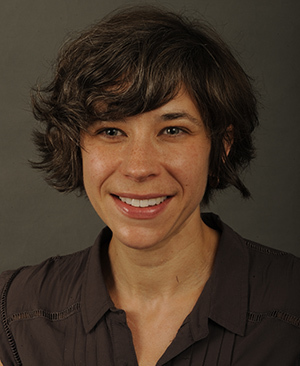
Two psychologists in Notre Dame’s College of Arts and Letters—Associate Professor Ying “Alison” Cheng and Assistant Professor Jill Lany—received Early Career Development (CAREER) Awards from the National Science Foundation (NSF) in 2014.
These awards, which include five years of support to the faculty members, add to the recent success of the Department of Psychology. Associate Professor Nicole McNeil received the department’s first CAREER grant in 2012 for her work on the development of mathematical thinking.
“The CAREER grant is the most prestigious investment that NSF can make in the development of the nation’s most promising scientists,” said Daniel Lapsley, professor and chair of the department, “and there is probably not a single psychology department in the country that can boast of having three faculty members who hold a current NSF Career grant.”
Cheng and Lany were also among eight Notre Dame faculty members to receive the awards in 2014, a record year for the University.
“The unprecedented success of our junior faculty for these highly prestigious and competitive early career awards is a testament to Notre Dame’s hiring success and of the talent and hard work of these faculty members, said Vice President for Research Robert Bernhard. “The departments and faculty members are to be commended, especially as only a few of the country’s most prestigious research universities had eight or more awardees this year.”
CAREER grants are given to those “who exemplify the role of teacher-scholars through outstanding research, excellent education, and the integration of education and research within the context of the mission of their organizations.”
Offering Valuable Feedback
 Ying “Alison” Cheng
Ying “Alison” Cheng
Cheng, also a fellow in Notre Dame’s Institute for Educational Initiatives (IEI), said she feels “extremely lucky” to receive the CAREER award.
“I am very much indebted to the support of my department and the Institute for Scholarship in the Liberal Arts, as well as the support of my colleagues in the IEI and the Center for Research Computing,” she said.
Cheng received the CAREER Award for her project, “Cognitive Diagnostic Adaptive Testing for AP Statistics.” Her research examines how computerized adaptive testing can provide diagnostic, formative feedback to students, using Advanced Placement-level statistics classes as an example.
The project could prove particularly important to underprivileged students when taking large-scale educational assessments like the SAT, Cheng said.
“Students from low socioeconomic backgrounds do not have access to tutoring and test-prep services. They can benefit tremendously from the diagnostic feedback offered by a system like the one developed in this project.
“The platform is also versatile enough to work with other STEM subjects. We see huge potential in helping underprivileged students across many disciplines.”
The project, she noted, marks an important step in her career development. “Prior to this, my research has focused on methodological work. This time, I am able to apply my algorithms to a real system to support assessment and learning. The potential of extending the system to other STEM subjects makes the project even more exciting.”
Shedding Light on Language Learning
 Jill Lany
Jill Lany
Lany, also director of Notre Dame’s Infant Studies Lab, said she is thrilled to receive the CAREER grant for her project, “Discovering the Underpinnings of Statistical Language Learning in Infants.”
“It is an honor to be chosen,” she said. “And, the grant provides resources that will support my research team for five years. We really couldn’t do the work without the support of the NSF.”
Lany’s proposed research will examine how developments in infants’ abilities to encode and remember auditory and visual information are related to language learning—and whether these abilities predict when infants will reach language milestones.
Promoting early identification of infants who are at risk for language delays is critical, Lany noted.
“Language is a fundamental ability in its own right, but it also opens doors for children in other areas of development,” she said. “Children who struggle to reach early language milestones are more likely to have problems with spoken and written language and also tend to struggle in school.
“The goal of this project is to shed light on how cognitive and environmental factors relate to the language-learning process at a mechanistic level. I hope to answer basic questions about the nature of language learning, as well as to provide information that might be used to help children with language delays.”


